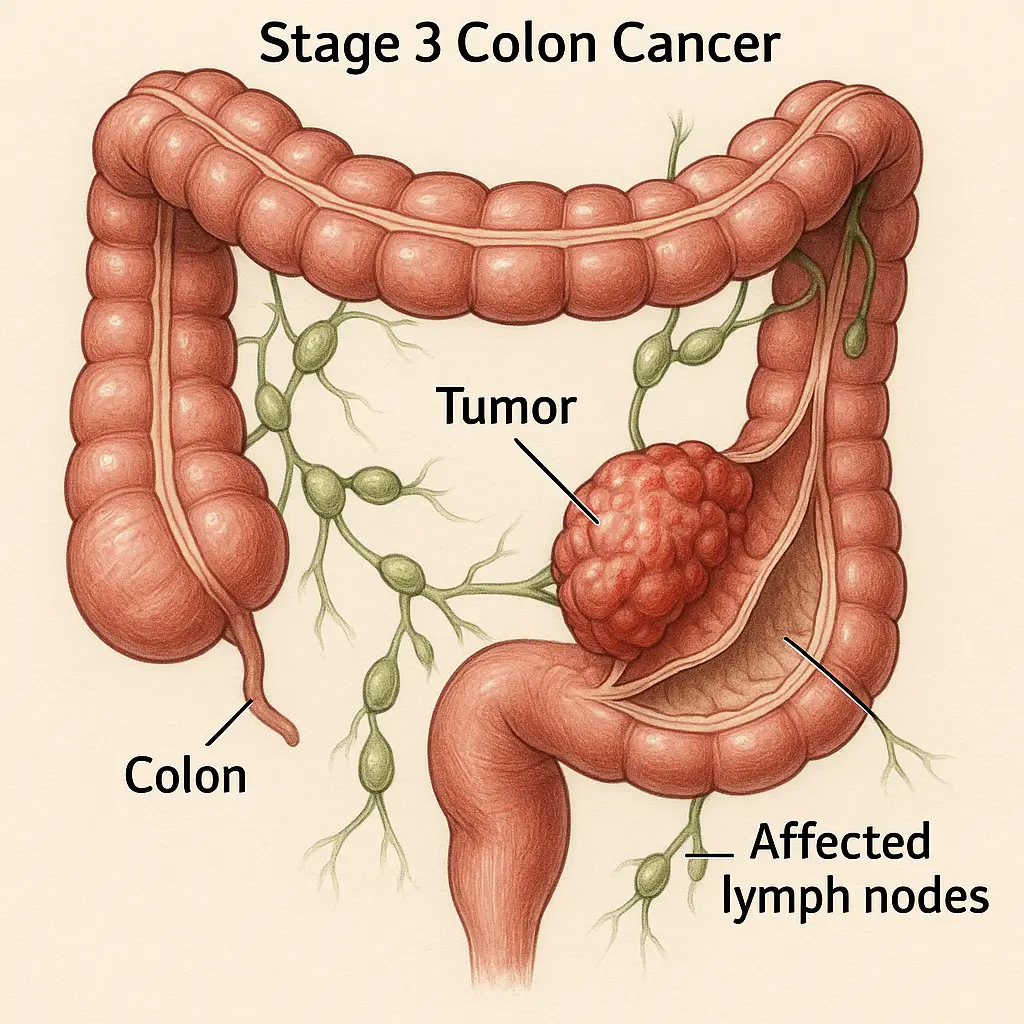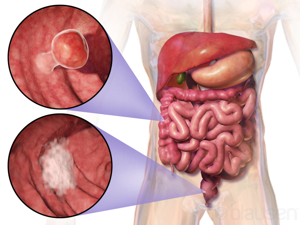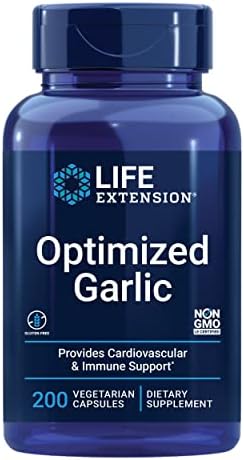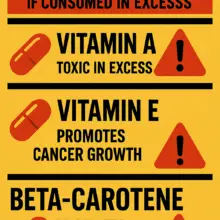Rising Colon Cancer
Understanding Colon Cancer: Causes, Genetics, Trends, Prevention, and Screening

What is Colon Cancer?
Colon cancer (also called colorectal cancer) is the development of malignant cells in the colon or rectum, both part of the large intestine. It begins as abnormal growths known as polyps. Over time, some polyps can transform into cancer, potentially spreading to other organs. Common symptoms include blood in the stool, changes in bowel movements, weight loss, abdominal pain, and fatigue.mayoclinic+2
When Was the First Documented Case of Colon Cancer?
The earliest documented case of cancers—including possible cases of colon cancer—dates back to ancient Egypt around 3,000 BC, described in the Edwin Smith Papyrus. The text includes descriptions of tumors and ulcers, though the word “cancer” was not used at that time. The first recognized hereditary form of colon cancer (now known as Lynch Syndrome) was systematically described by Dr. Aldred Warthin in 1913, who studied familial patterns of gastrointestinal and gynecological cancers.pmc.ncbi.nlm.nih+1
Genetic and Non-Genetic Factors of Colon Cancer
Genetic Factors
Some cases of colon cancer are hereditary and result from specific gene mutations passed through families. These genetic mutations account for about 5% of all cases. Key inherited syndromes include:
- Familial Adenomatous Polyposis (FAP): Changes in the APC gene lead to hundreds of colon polyps, almost always resulting in cancer without treatment.
- Lynch Syndrome (Hereditary Nonpolyposis Colorectal Cancer or HNPCC): Mutations in genes such as MLH1, MSH2, MSH6, PMS2, and EPCAM compromise DNA repair, significantly increasing colon cancer risk.
- Peutz-Jeghers Syndrome: Mutations in the STK11 gene.
- MUTYH-associated polyposis: Mutations in the MUTYH gene.
- Other rare syndromes may also elevate risk.cancer+2
Non-Genetic Factors
Most cases arise from non-genetic risk factors, which include:
- Age: Risk rises notably after age 50.
- Diet: High intake of red meat, processed meat, animal fats, and sugar; low fiber intake.
- Obesity and a sedentary lifestyle
- Smoking and excessive alcohol consumption
- History of inflammatory bowel diseases (ulcerative colitis, Crohn’s disease)
- Diabetes
- Radiation exposuremskcc+4
Why Is Colon Cancer Rising Among the Young?
Recent data shows an alarming rise in colon and other gastrointestinal cancers among people under 50, with a 14.8% increase in new cases between 2010 and 2019. People born in 1990 are twice as likely to develop colon cancer and four times as likely to develop rectal cancer compared to those born in 1950. Factors contributing to this rise may include:
- Changes in diet (more processed foods, sugars, and animal fats)
- Increasing rates of obesity and diabetes in youth
- Environmental factors and lifestyle changes (reduced physical activity, higher alcohol use)
- Delays in diagnosis due to lower awareness among young adults and doctors.dana-farber+1
Top Recommendations for Prevention and Early Detection
Prevention:
- Eat a high-fiber diet with plenty of fruits, vegetables, and whole grains.
- Limit processed and red meats, sugar, and saturated animal fats.
- Avoid smoking and excessive alcohol consumption.
- Maintain a healthy weight and exercise regularly.
- Control chronic diseases such as diabetes.
Early Detection:
- Regular screening (recommended ages 45–75): Methods include colonoscopy, stool tests (such as FIT or FOBT), and CT colonography (virtual colonoscopy).
- Colonoscopy: Gold standard for detection, allows for polyp removal and biopsy in one procedure.
- MRI and CT colonography: Alternate options for screening, though less routinely used. Cost can be significantly higher out-of-pocket, depending on insurance coverage—MRI can range widely from a few hundred to several thousand dollars; colonoscopy out-of-pocket costs for insured patients average around $80, but full costs can exceed $1,000–$2,100 depending on the facility.carrumhealth+2
- Genetic testing for those with family history or risk factors.blogs.bcm+1
Colonoscopy vs MRI Screening: Benefits and Costs
Colonoscopy:
- Effective at detecting and removing precancerous polyps.
- Typically covered by insurance if used for preventive screening, minimal out-of-pocket costs for insured patients.
- Average total cost in the US is $1,100–$2,100, with out-of-pocket generally around $80 for insured patients but can be much higher for uninsured patients.goodrx+1
MRI/CCT Colonography:
- Less invasive, no need for sedation.
- Average MRI cost without insurance is around $2,000, but can vary from $400–$10,000.
- May be more costly and less accessible for routine screening compared to colonoscopy; follow-up colonoscopy needed if suspicious lesions are found.pmc.ncbi.nlm.nih+3
Impact of Diet and Exercise on Prevention
- Diet: High fiber, plant-based diets with limited red/processed meats lower colon cancer risk. Western diets high in animal fats, sugars, and processed foods are associated with increased risk, likely due to chronic inflammation and obesity.healthmatters.nyp+1
- Exercise: Regular physical activity significantly reduces colon cancer risk and improves survival rates among survivors. Structured exercise programs can reduce recurrence and lower overall mortality by more than a quarter.oncology-central+1
- Vitamin D Anticancer properties: Laboratory studies show vitamin D can inhibit cancer cell growth, trigger programmed cell death (apoptosis), and reduce the ability of cancer cells to spread (metastasis).
In summary, colon cancer is largely preventable through healthy lifestyle choices and regular screening, which allows for early detection and removal of precancerous growths. The increase in cases among younger people underscores the need for vigilance in dietary and exercise habits and timely screening for all at-risk individuals, regardless of age.

The first documented case of colon cancer dates back to the analysis of an ancient Egyptian mummy from the Dakleh Oasis, who lived during the Ptolemaic period (200–400 CE). This diagnosis was made much later by Professor Michael Zimmerman, using modern paleopathological techniques—specifically microscopic analysis of tissue samples taken from mummified remains. The identification of cancer in ancient remains involved histological examination (inspection of tissue microstructure by microscope), as other established diagnostic methods like endoscopy or imaging were obviously unavailable at the time.wikidoc
In terms of hereditary colon cancer, the first recognized account was by Dr. Aldred Warthin in 1913, who published a report documenting patterns of endometrial, gastric, and colon cancers in a particular family he began studying in 1895. His work laid the foundation for the identification of Lynch Syndrome (hereditary nonpolyposis colorectal cancer). These early cases were diagnosed based on extensive family histories and clinical observation, often involving the physical presentation of advanced tumors and autopsy findings, prior to the advent of modern diagnostics like colonoscopy or biopsy.pmc.ncbi.nlm.nih+1
My Recommended Supplements
I believe the supplements below can have the biggest benefit to your health your overall and as far as colon cancer maybe do more research about the affected of vitamin D,of course these are supplements i use daily,but you should discuss this with your personal health professional before following my recommendations.
- Healthy aging – Resveratrol promotes healthy aging, but has low bioavailability. This formula contains trans-resveratrol…
- Brain & cardiovascular health – Resveratrol supports cardiovascular health, cognitive health, and is a powerful antioxid…
- Augmented with quercetin – Optimized Resveratrol Elite combines trans-resveratrol with quercetin, a plant-derived nutrie…
- 120 SOFTGEL SIZE: Life Extension Vit D Supplement – 5000 IU (125 mcg) – 120 Soft Gels
- 120-DAY SUPPLY: Each bottle contains a 120-day supply when taken according to the directions on the bottle. Directions: …
- TRUSTED SOURCE: Made in the USA – LEF has been around for over 40 years
- Vitamin K2 supports heart health – High intakes of vitamin K2 correspond with better arterial health. Why? K2 facilitate…
- Bioavailable vitamin K2 – When it comes to vitamin K, K2 is up to 10 times more bioavailable than K1—so it can stay biol…
- Alternative to dietary K2 – Not all of the dietary K2 choices are the healthiest, and you often need large amounts of fo…
- Immune support – Get the health benefits of garlic! Our Optimized Garlic contains 1,200 mg of garlic extract to help sup…
- Compounds for heart health – Garlic contains sulfur compounds that are not only responsible for its heart-friendly benef…
- Encourage cellular health – Garlic has antioxidant properties and can boost the level of natural glutathione, an importa…
- Stress relief supplement—Ashwagandha is an herb that’s been used for centuries for its stress management properties. Stu…
- Ashwagandha for focus and memory—The Ayurvedic herb confers antioxidant activity to support brain health. Our ashwagandh…
- Mood support supplement—Ashwagandha is a potent adaptogen known to encourage a relaxed state of mind. Our high-quality f…
- Exercise performance and muscle function – When it comes to workout supplements, creatine stands out. It supports exerci…
- Cellular energy and metabolism – Creatine is involved in the process of producing cellular energy (also known as ATP). A…
- A wealth of other benefits – Creatine supplements aren’t just good for fitness. Research has shown that creatine can als…
- Mind and body energy – Both creatine and acetyl-L-carnitine help produce energy at the cellular level. Because of this, …
- Cognitive function – Fuel those mind muscles! The cellular energy from acetyl-L-carnitine helps your body fuel your brai…
- Exercise performance – Creatine is world-famous for lean muscle and exercise performance support. With regular exercise,…










